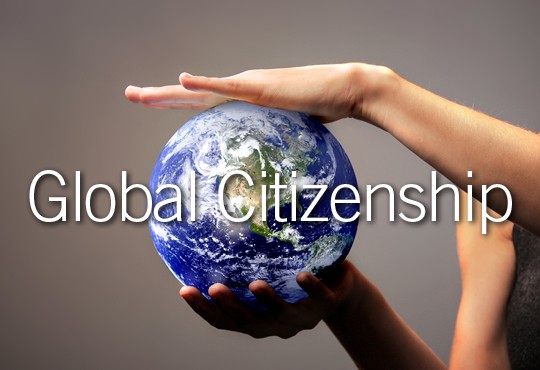
Global citizenship education is emerging as a vital framework for preparing individuals to thrive in an interconnected world. As economies, cultures, and technologies become increasingly intertwined, the ability to understand and engage with global issues is no longer a luxury—it’s a necessity. This form of education goes beyond traditional academic subjects, focusing instead on cultivating awareness, empathy, and responsibility across borders. It encourages learners to see themselves not just as members of a nation or organization, but as participants in a global community with shared challenges and opportunities. For businesses, this mindset is particularly valuable, as it fosters a workforce that is culturally competent, ethically grounded, and capable of navigating complex international landscapes.
At its core, global citizenship education is about perspective. It invites individuals to consider how their actions affect others, both locally and globally. This might mean understanding the environmental impact of supply chains, recognizing the social implications of marketing strategies, or appreciating the cultural nuances of international partnerships. In a business context, these insights can lead to more sustainable practices, more inclusive branding, and more effective collaboration. For example, a company expanding into new markets may benefit from employees who understand local customs, speak multiple languages, or are sensitive to regional concerns. These qualities are not just nice to have—they’re strategic assets that can drive growth and innovation.
The importance of global citizenship education also lies in its emphasis on critical thinking and ethical reasoning. In a world where misinformation spreads rapidly and decisions often have far-reaching consequences, the ability to analyze issues from multiple angles is crucial. Learners are encouraged to question assumptions, evaluate sources, and consider the long-term impact of their choices. This kind of thinking is invaluable in business, where leaders must weigh profitability against social responsibility, and where short-term gains can sometimes undermine long-term success. A global citizen is someone who understands that doing good and doing well are not mutually exclusive, and who seeks solutions that benefit both the organization and the broader community.
Technology has amplified the relevance of global citizenship education. Digital platforms connect people across continents, enabling collaboration, communication, and commerce at unprecedented scales. But they also expose users to diverse viewpoints, cultural tensions, and ethical dilemmas. Educating individuals to navigate this digital landscape with respect and discernment is essential. Businesses, too, must operate with digital fluency and cultural sensitivity, especially as remote work and virtual teams become the norm. A global citizenship mindset helps employees engage constructively online, manage cross-cultural dynamics, and contribute to inclusive digital spaces.
Incorporating global citizenship education into professional development can also enhance leadership. Leaders who understand global contexts are better equipped to anticipate trends, manage risk, and inspire diverse teams. They are more likely to champion equity, sustainability, and innovation, aligning their organizations with the values of a changing world. Consider a CEO who integrates climate awareness into corporate strategy, or a manager who fosters inclusive hiring practices across regions. These actions reflect a broader vision—one that sees business not just as a vehicle for profit, but as a force for positive change.
Education systems around the world are beginning to recognize the value of this approach. Schools, universities, and training programs are embedding global citizenship themes into curricula, encouraging students to engage with global challenges such as climate change, migration, and human rights. These efforts are not limited to the classroom. Experiential learning, such as international exchanges, service projects, and cross-border collaborations, helps learners apply their knowledge in real-world settings. For businesses, partnering with educational institutions to support these initiatives can be a powerful way to invest in future talent and demonstrate corporate responsibility.
The benefits of global citizenship education extend beyond individual development. They contribute to more resilient and inclusive societies. When people understand and respect different cultures, they are less likely to fall into patterns of prejudice or isolation. When they see global challenges as shared concerns, they are more likely to collaborate across borders. This spirit of cooperation is essential in addressing issues that no single nation or company can solve alone. Whether it’s combating pandemics, reducing carbon emissions, or promoting digital equity, global citizenship provides the mindset and skillset needed to work together effectively.
For businesses, embracing global citizenship education is not just about staying competitive—it’s about staying relevant. Consumers are increasingly drawn to brands that reflect their values, and employees seek workplaces that support purpose-driven careers. By fostering a culture of global awareness and ethical engagement, companies can attract top talent, build customer loyalty, and contribute meaningfully to the world. This requires more than a mission statement—it demands action, investment, and a commitment to continuous learning.
Ultimately, global citizenship education is about preparing people to lead with empathy, act with integrity, and think beyond borders. It equips individuals to navigate complexity, embrace diversity, and contribute to a more just and sustainable world. For businesses, it offers a blueprint for responsible growth and meaningful impact. As the global landscape continues to evolve, the importance of this education will only deepen, shaping not just how we work, but how we live, connect, and build the future together.